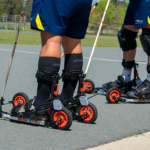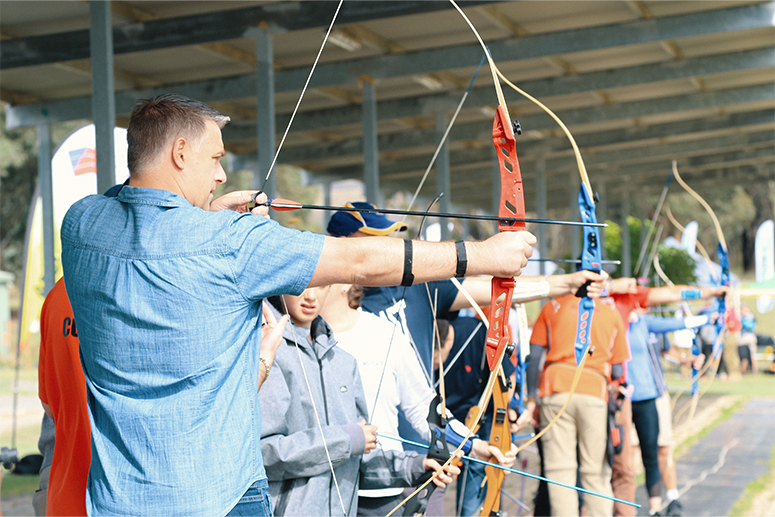
Can sport combat alarming Defence statistics? New research sheds light
The weight of military service, training and deployment both for current and former members of the Australian Defence Force, can leave lasting marks and unique challenges. Physical injuries and the invisible wounds of war and service, such as post-traumatic stress disorder (PTSD) and other mental health challenges, can significantly impact wellbeing and in some cases, lead to suicide.
Findings rolling out from The Royal Commission into Defence and Veteran Suicide have provided an alarming wake up call for the Defence community stating there are on average three deaths by suicide by serving or ex-serving Defence members every fortnight across Australia1, with male serving members of the ADF being 30% more likely to die for this reason when compared to the employed population. In an address to the National Press Club of Australia, Nick Kaldas, The Chair of the Commission, expressed the ripple effect these deaths have on communities, with an estimated 135 people affected in some way by any one suicide.
With the Commission identifying permanent service as a risk factor for suicide, we need to consider the physical and mental wellbeing of all veterans plus the vital role their families play , and their specific needs. Amidst this challenging landscape, multiple research papers suggest that the positive benefits of sport and social connection could translate to this group in a beneficial way, a concept that underpins Invictus Australia’s grassroots and international programs, collaborative approach and focus on building supportive communities. With transition being identified as both a cause of this problem and an opportunity to improve the wellbeing of veterans, the positives of sport and social connection are beneficial to veterans at all stages of their Defence career.
Sport as a transformative force for good
While sport and physical activity are known to be great for physical health, both social and mental health can see positive benefits too. Taking time out of one’s life to participate, volunteer or even spectate a community sporting event, especially with others, can improve resilience, increase social connectedness and a sense of belonging and lead to greater levels of life satisfaction, according to the Australian Sports Commission2. Working towards a common goal with teammates, celebrating victories, and supporting each other through challenges creates a social safety net that can be crucial for those facing mental health struggles.
In many ways, the positive effects of sport mirror what many veterans miss when they discharge from the Defence force. The camaraderie and mateship they experienced is often gone and is hard to replace. However, many veterans, like Daniel Cooper, can replace this camaraderie through sport. For Daniel, it was getting back to the gym that helped his physical and mental health.
The support, encouragement and motivation at the gym, it is reminisce of the military environment. It allowed me to have confidence to try new things.”
New Research on sport from the Invictus Games Foundation
While the positive effects of sport for the wider population are clear, recently published research3 which followed Invictus Games Sydney 2018 competitors provides insight into the long-term benefit of competitive sport for wounded, injured and ill veterans.
The study found that competitors in the Games experienced significantly greater positive impacts on their mental and social well-being compared to non-competitors. These effects were mirrored in those who trained with the team also, since they had access to sporting camps and selection trials that could still provide the social connectedness and positive mental effects of sport.
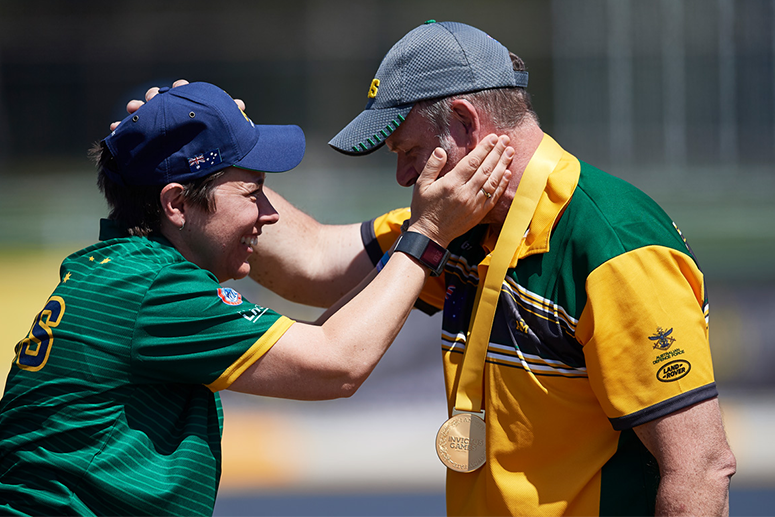
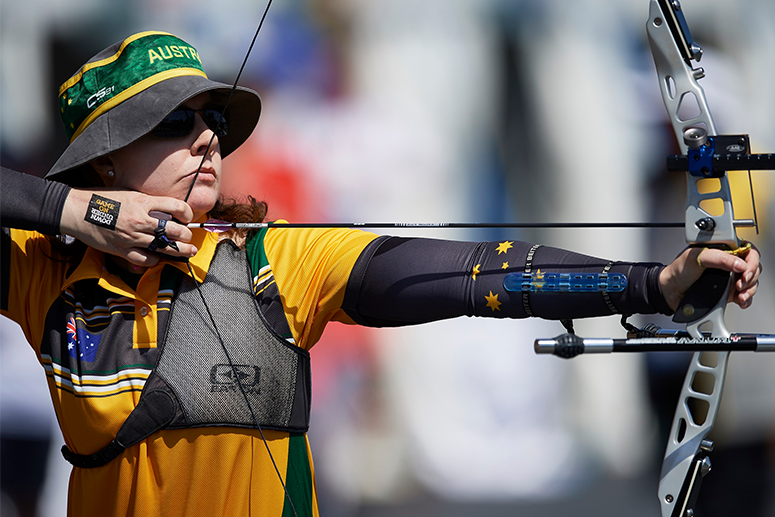
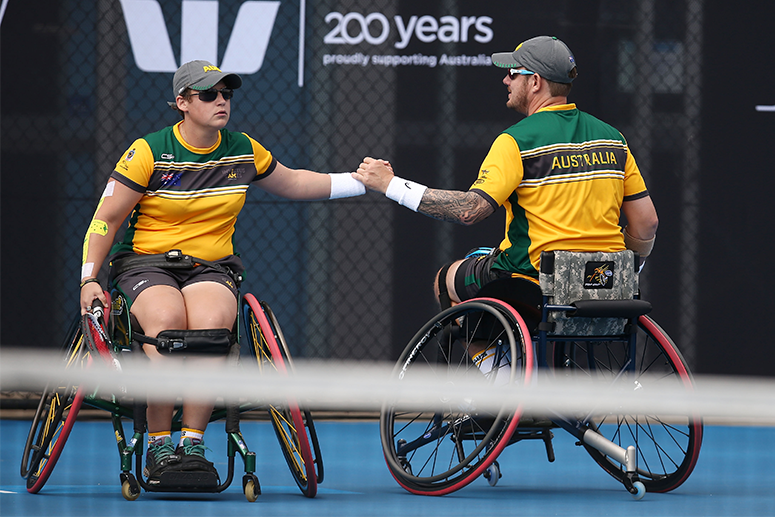
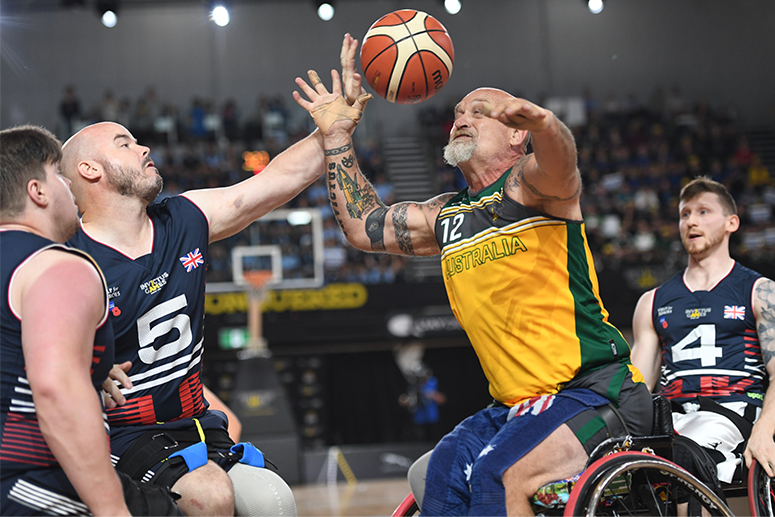
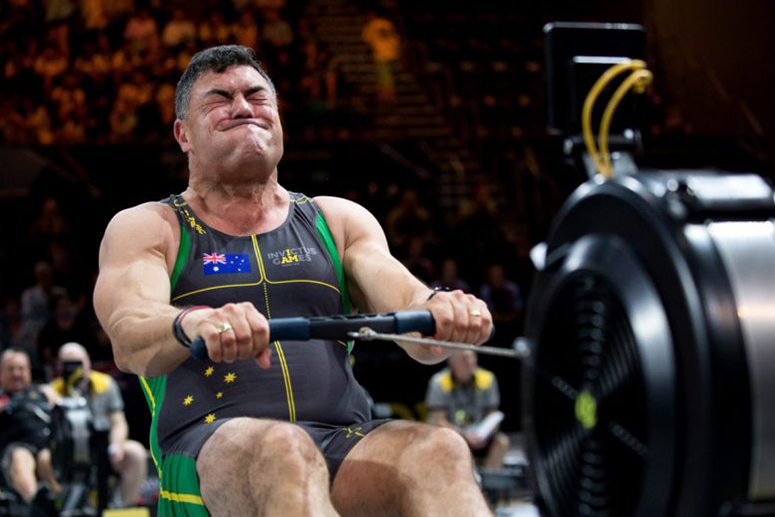
Interestingly, the research also highlighted the importance of sporting-based activities conducted “between Games.” These ongoing programs, focused on mental fitness skills and resilience training, were shown to be even more beneficial than sports development alone in maintaining positive well-being outcomes for veterans. This finding underscores the critical need for ongoing support for the Defence community, rather than just a focus on competition and a single event.
Often, ongoing support through sport becomes essential for veterans following their positive experiences on the International Stage. For Invictus Games Dusseldorf 2023 competitor Ainsley Hooker, regularly participating in sport has kept her connected with other competitors and the wider community. This has allowed Ainsley to maintain her physical, social and mental health, which was suffering when she transitioned out of the Army following a medical discharge:
Being involved in wheelchair rugby has been amazing – the joy and happiness from meeting new people, competing and training has really brought me back from death. I feel alive again and have a new drive to push myself further.”
Invictus Australia: A Multi-Faceted Approach to sport
Invictus Australia tackles this challenge head-on through a two-pronged approach – international teams and local sporting events.
Internationally, IA provides opportunities for veterans to compete in international events such as the World Surf Life Saving Championships and partners with the Australian Defence force to deliver Team Australia for the Invictus and Warrior Games. These competitions offer a platform for veterans to showcase their resilience, build camaraderie, and experience a renewed sense of purpose. As well as working on their physical health, these events foster a sense of self-belief and accomplishment essential for their mental health.
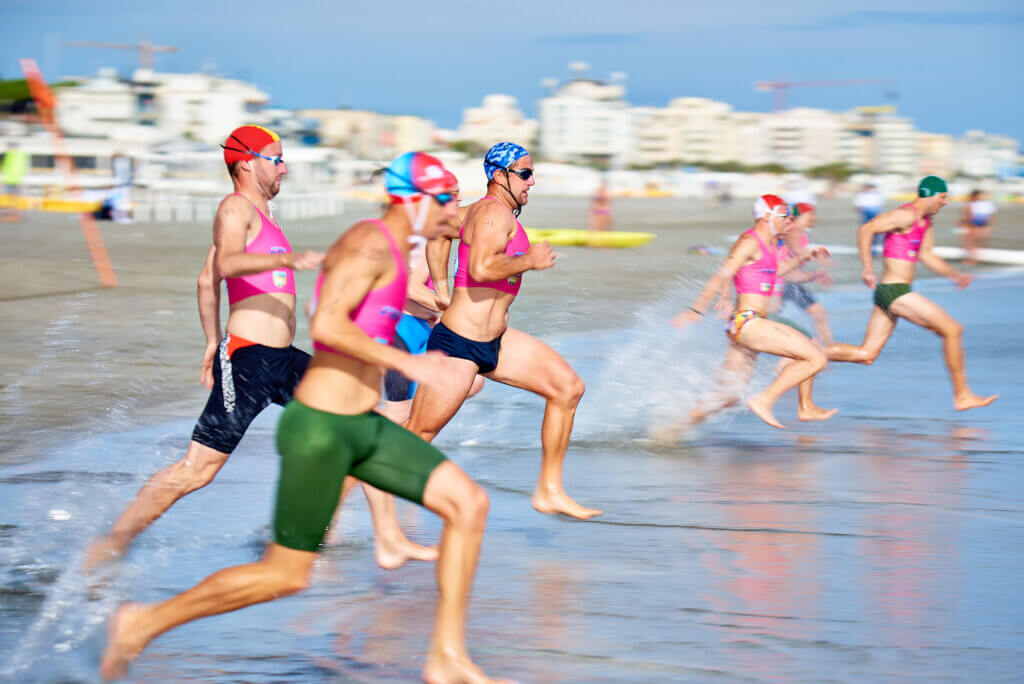
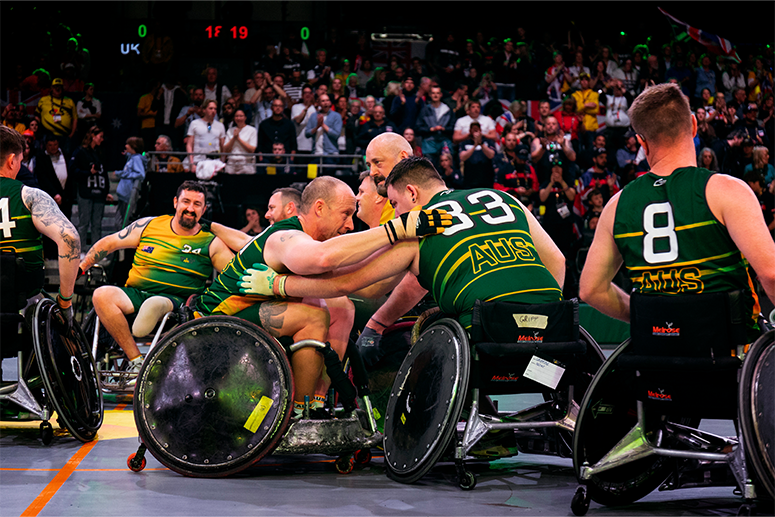
However, places in these teams are limited and short term. To combat this, Invictus Australia’s Veteran Engagement Managers facilitate local sporting opportunities for all veterans and family members to connect, participate in physical activity and build social connections within their communities. These ongoing activities provide a vital support network and contribute significantly to their mental wellbeing, as well as encouraging the community to sign up for club sport. Alumni, those who were not selected for teams and the wider defence community are all encouraged to attend events in their area by connecting with Invictus Australia’s local Engagement Managers, to improve physical health, strengthen mental wellbeing and foster a sense of belonging.
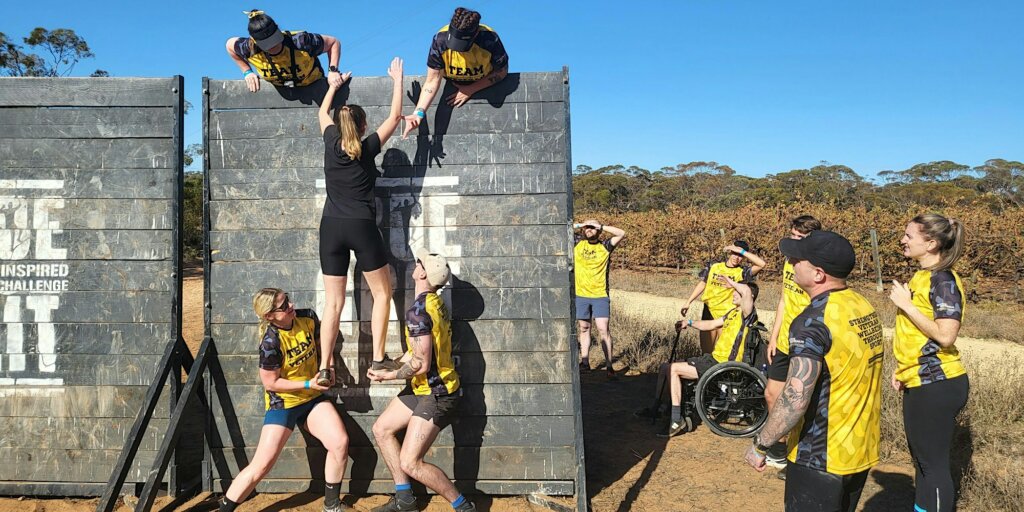
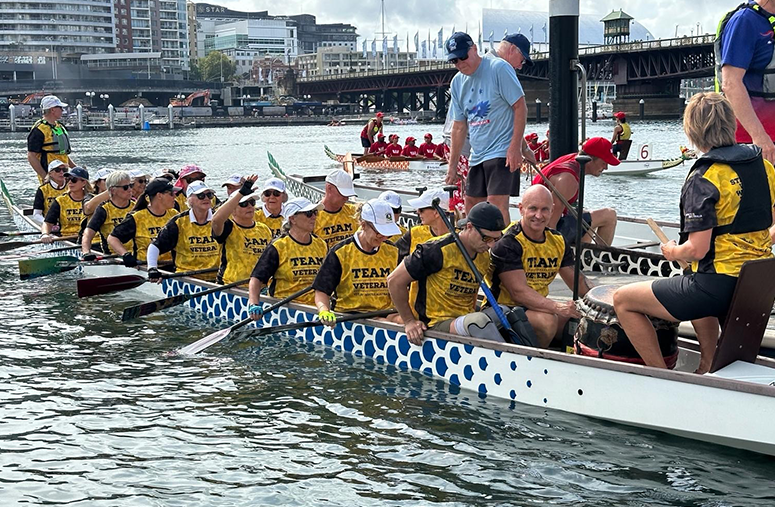
A Roadmap to Positive Change
The research provides a clear message: sport, on both the international and community level, can provide a holistic approach to the wellbeing of veterans and their family members.
By tackling the issue on both the international and community levels, Invictus Australia is actively working to address the findings of the Royal Commission and create a future where all veterans have access to the support and resources they need to thrive. A well-rounded approach that addresses both the social and mental health needs of the Defence community can be achieved through sport, leading to a brighter future for those who have served.

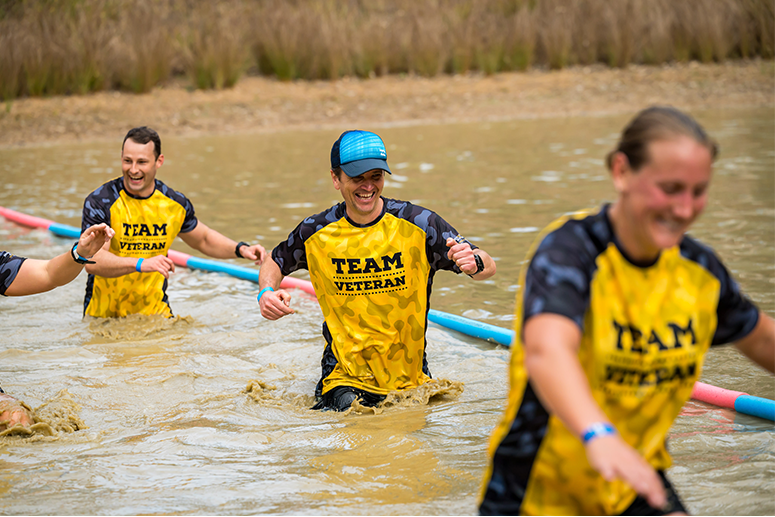
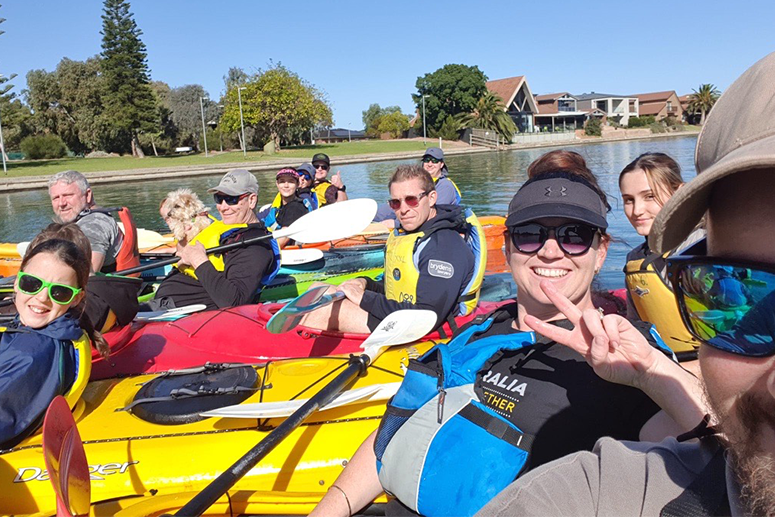
For those in the Defence community wishing to connect through sport, Find an event near your or join your local Facebook group.
As a Not-for-profit, Invictus Australia relies on the generous support of Government, Corporate Australia and the general public. If you would like to support our work, please get in touch.
MAKE A SECUREDONATION
References:
Looking to get involved in sport in your region? Connect with our staff through your regions Facebook group or email support@invictusaustralia.org



